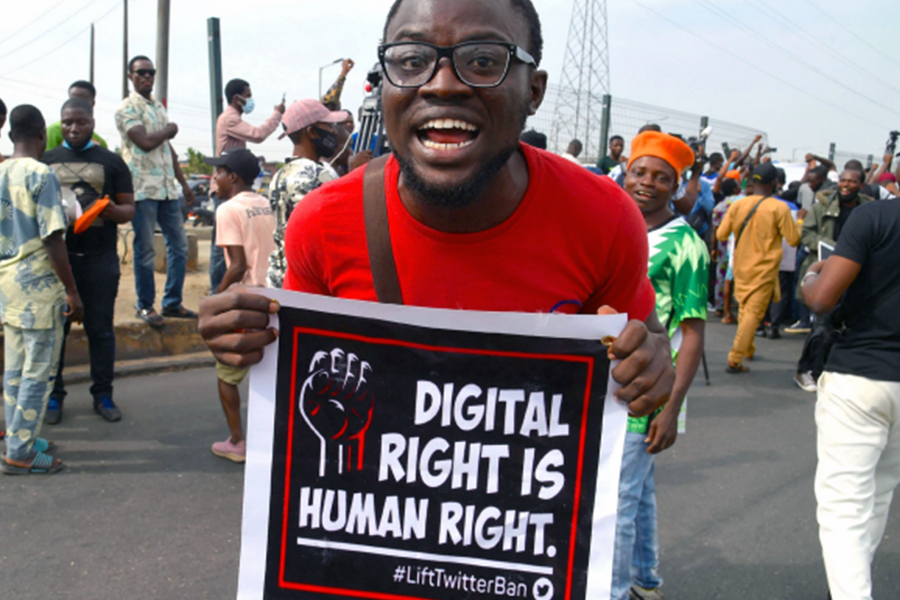For the 11th consecutive year, the environment for human rights online deteriorated in 30 countries this year. Only 18 countries registered net gains.
Freedom on the Net is an annual study of human rights in the digital sphere, by the Freedom House organization.
The project assesses internet freedom in 70 countries, accounting for 88% of the world’s internet users. The report “Freedom on The Net 2021 – The Global Drive to Control Big Tech”, the 11th in its series, covered developments between June 2020 and May 2021.
In this document, we identify the global internet user stats based on over 3,8 billion people having access to the internet.
According to Freedom House estimates:
– 75% live in countries where individuals were arrested or imprisoned for posting content on political, social, or religious issues;
– 72% live in countries where individuals have been attacked or killed for their online activities since June 2020;
– 64 % live in countries where authorities deployed pro-government commentators to manipulate online discussions;
– 56% live in countries where political, social, or religious content was blocked online;
– 46% live in countries where access to social media platforms was temporarily or permanently restricted;
– 41% live in countries where authorities disconnected internet or mobile networks, often for political reasons.
Free expression in danger
The Chinese government remained the world’s worst abuser of internet freedom for the seventh year in a row.
New legislation criminalized insults to members of the armed forces, “heroes” and “martyrs”. Authorities imposed draconian prison terms for online dissent, including an 18-year sentence against real-estate mogul Ren Zhiqiang, whose essay criticizing Communist Party chief Xi Jinping’s handling of the Covid-19 pandemic had circulated widely online.
Global internet freedom declined for the 11th consecutive year
The greatest deteriorations were documented in Myanmar, Belarus, and Uganda, where state forces cracked down amid electoral and constitutional crises. Myanmar’s 14-point score decline is the largest registered since the Freedom on the Net project began.
Governments clashed with technology companies on user rights
Authorities in at least 48 countries pursued new rules for tech companies on content, data, or competition over the past year. With a few positive exceptions, the push to regulate the tech industry, which stems in some cases from genuine problems like online harassment and manipulative market practices, is being exploited to subdue free expression and gain greater access to private data.
Free expression online is under unprecedented strain
More governments arrested users for nonviolent political, social, or religious speech than ever before. Officials suspended internet access in at least 20 countries, and 21 states blocked access to social media platforms. Authorities in at least 45 countries are suspected of obtaining sophisticated spyware or data-extraction technology from private vendors.
The United States’ score declined for the fifth consecutive year
False, misleading, and manipulated information continued to proliferate online, even affecting public acceptance of the 2020 presidential election results.
News laws put free expression online at risk
Germany’s 2018 Network Enforcement Act (NetzDG), for example, introduced problematic requirements for companies to expediently remove content without a court order.
While the law has since been amended, the original has been mimicked and misused by backsliding democracies and authoritarian regimes in order to force social media providers to remove LGBT+ content and investigative journalism.
Similarly, authorities in several countries cited the EU’s 2018 General Data Protection Regulation (GDPR) to stymie cross-border data flows.
Final impressions of report
State intervention must protect human rights online and preserve an open internet. The emancipatory power of the internet depends on its egalitarian nature. To counter digital authoritarianism, democracies should ensure that regulations enable users to express themselves freely, share information across borders, and hold the powerful to account.
The only 18 countries registered net gains are: Argentina, Armenia, Australia, Canada, Costa Rica, Estonia, France, Georgia, Germany, Hungary, Iceland, Italy, Japan, Serbia, South Africa, Taiwan, United Kingdom, and the United States.
Portugal is considered a free country in the global freedom scores but is not included in the report.

